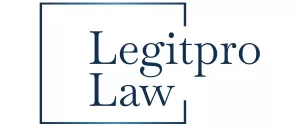- within Privacy topic(s)
- with Finance and Tax Executives
- in India
- with readers working within the Law Firm industries
Legal Analysis of Digital Personal Data Protection Rules, 2025
The introduction of the Digital Personal Data Protection Rules, 2025 represents a critical turning point in India's efforts to create a robust and up-to-date data protection framework. While the Digital Personal Data Protection Act, 2023 set the legislative groundwork, it is the DPDP Rules that deliver the operational and procedural framework that enterprises must adhere to in order to successfully navigate the evolving compliance environment. For organizations operating within India's digital economy or handling the personal data of Indian citizens, the Rules represent not just an extension of the Act, but a comprehensive guide detailing how systems, technologies, business models, and internal governance structures must evolve to meet the demands of an advancing regulatory landscape.
In the current digitally interconnected markets, businesses depend greatly on clear data governance and robust digital infrastructure. The DPDP Rules elucidate crucial responsibilities such as consent protocols, data retention policies, security strategies, breach notification procedures, protections for children's data, and regulations concerning cross-border transfers. Furthermore, they establish new institutional frameworks, including the Consent Manager ecosystem and the operational structure of the Data Protection Board of India, which collectively redefine the obligations of businesses well beyond conventional privacy practices.
- How should businesses provide a notice for consent?
One of the key aspects of the Rules involves the comprehensive revision of notice and consent requirements. Rule 3 mandates that every business must deliver a standalone privacy notice that is straightforward, clear, and easily comprehensible. These notices should:
- Contain a detailed enumeration of the personal data that will be processed;
- Specify the purpose or purposes for which the processing occurs;
- Provide a clear description of the products, services, or uses that the processing facilitates;
- Be presented separately from other information, utilizing simple and direct language;
- Include links or other clear methods for withdrawing consent, exercising rights, and filing complaints with the DPB.
As per DPDP Rules 2025, consent must now be given freely, be fully informed, unambiguous, specific to each stated purpose, and revocable at any moment. The Rules require businesses to make the process of withdrawing consent as simple as granting it. For certain businesses, this change will necessitate significant modifications to user interfaces, customer workflows, and backend systems. Platforms that gather data for various purposes will be required to create purpose-specific consent categories and make certain that each action performed by a user is linked to a clearly documented and traceable consent record. This transforms consent from a mere symbolic checkbox into a crucial operational element that encompasses both legal and technological considerations.
- Consent Managers: A New Intermediary in the Data Ecosystem
A significant development initiated by the Rules is the establishment of Consent Managers. These entities are specialized and regulated, enabling users to monitor, manage, and withdraw consent across various services in a seamless and interoperable manner. A Consent Manager must be registered with the Data Protection Board and must showcase robust technical frameworks, financial soundness, and governance architectures. These entities must embrace encryption and masking protocols that obstruct them from accessing the actual personal data they relay, ensuring that they function as impartial intermediaries instead of data hoarders.
For businesses, Consent Managers will act as a layer of accountability that fosters transparency and centralization of consent management. Businesses that opt to collaborate with these Consent Managers will need to verify technical compatibility and operational synchronization with their systems. For extensive platforms that cater to millions of users, consent managers will likely assume a pivotal role in streamlining cumbersome consent procedures, boosting user confidence, and fulfilling the demands of regulators.
- Security Measures
Rule 6 establishes core security expectations that are relevant to all enterprises managing personal data. In the current landscape marked by escalating cyber threats, a surge in ransomware attacks, and the growth of digital infrastructures, these stipulations highlight the understanding that data protection and cybersecurity are intricately linked.
The Rules require businesses to adopt security protocols such as encryption both at rest and in transit, role-based access controls, robust authentication systems, retention of access logs for a year, ongoing monitoring, regular audits, and well-organized business continuity and disaster recovery plans. For many organizations particularly those reliant on outdated systems, these requirements may demand a substantial reconfiguration of internal frameworks. Nonetheless, the investment corresponds with the key business goal of mitigating operational risks, upholding customer confidence, and avoiding reputational damage.
Companies can no longer delegate security responsibilities to external vendors. The Rules assign direct liability to data fiduciaries for the actions of processors and other service providers. This amplifies the necessity for thorough vendor due diligence, comprehensive contractual protections, and proactive oversight of third-party performance.
- Essential Data Breach Notification
Rule 7 establishes one of the most rigorous breach notification frameworks in the world, mandating that businesses notify both the impacted individuals and the Data Protection Board as soon as they become aware of a personal data breach. This prompt notification is succeeded by a comprehensive report that must be submitted within 72 hours, detailing the nature of the breach, the data involved, the actions taken to mitigate the damage, and measures implemented to avert future occurrences. Importantly, the Rules do not incorporate any threshold for harm or risk. Even the slightest breaches are required to be reported. This introduces a significant degree of transparency to the Indian data landscape, but it also compels businesses to implement swift incident detection tools, internal escalation processes, and communication templates that facilitate the quick and precise sharing of information. Organizations that do not possess advanced incident response capabilities will be required to invest in technology, training, and structured workflows to comply with the demanding timelines set forth by the Rule.
- Retention and Deletion of Personal Data
Rule 8 establishes new obligations for retention and erasure that transform the way businesses handle personal data. All fiduciaries are required to keep personal data and related logs for a minimum of one year, even if the original business purpose has been fulfilled. This enhances compliance, facilitates audits, aids in dispute resolution, and fosters baseline consistency across various industries.
In addition, specific categories of digital platforms must delete user data after three years of inactivity, provided they inform the user at least 48 hours in advance. This establishes a formal timeline for data lifecycles in sectors with high volumes of user data, such as e-commerce, gaming services, and social media platforms.
For all other businesses, data must be discarded once its purpose has been served and there are no legal obligations requiring its continued retention. This necessitates that businesses link each piece of personal data to a defined purpose, set retention schedules, and create automated or semi-automated erasure processes to avoid unintentional over-retention.
- Handling Children's Data
The data of children is regulated by a stricter framework aimed at reducing risks and encouraging responsible online interactions. Rule 10 mandates that companies secure verifiable parental consent prior to handling the personal data of individuals under the age of 18.
The verification process must be dependable and can utilize tokens issued by authorized organizations, credentials supplied by users, or other reliable methods. This requirement is coupled with clear bans on harmful tracking, profiling, or advertising that could adversely affect children. The Rules provide limited exceptions for healthcare providers, educational institutions, and child protection services, where data processing may take place without obtaining prior parental consent.
For companies functioning in industries such as edtech, gaming, and social media applications, these mandates require a significant re-evaluation of onboarding processes, monitoring capabilities, and advertising approaches. They need to create interfaces that allow parents to grant and revoke consent, confirm identity, and oversee the child's online activities.
- Significant Data Fiduciaries for High-Impact Entities
Rule 13 mandates that organizations recognized as Significant Data Fiduciaries (SDFs) adhere to additional layers of accountability. While the criteria for this designation stem from the Act, it is expected that major platforms, financial institutions, telecommunications companies, health data processors, and high-volume aggregators will be included in this category.
SDFs are required to designate a Data Protection Officer located in India, perform annual data protection impact assessments, undergo yearly independent audits, and guarantee that their algorithms do not negatively affect individuals' rights. These heightened responsibilities establish an ongoing governance framework and may necessitate the formation of specialized privacy and compliance teams.
- Cross-Border Data Transfers
Rule 15 permits cross-border data transfers under certain conditions set by the Central Government. Although the standard approach allows for international transfers, the Government holds the authority to limit specific data categories or particular jurisdictions due to national interests, public policy considerations, or apprehensions about foreign surveillance and regulatory sufficiency.
Consequently, businesses need to cultivate a nuanced understanding of data flows, ensure robust contractual arrangements with international vendors, and stay informed about Government notifications that may introduce localization or transfer limitations.
- Rights of data principals empowering customers as a compliance necessity
Rule 14 puts user rights into action by mandating that businesses allow individuals to access their data, request modifications or deletions, and seek resolution for grievances. Furthermore, it introduces the notion of a nominee who can exercise rights on behalf of a data principal in situations of death or incapacity.
From a business perspective, the obligation to uphold these rights shifts privacy from being merely a legal duty to becoming a component of customer experience. Organizations will need to create user-friendly interfaces, verification processes, and internal systems that efficiently manage rights requests in a timely and transparent manner.
- The Data Protection Regulatory Body of India
Rules 17 to 22 lay the groundwork for the structure, powers, procedures, and appeal processes of the Data Protection Board of India. The Board is set to function primarily through digital platforms, facilitating effective filing, inquiry, and adjudication processes. Its authority encompasses initiating investigations, requesting information, issuing directives, and levying penalties.
As a result, businesses must keep digital records, audit trails, breach logs, governance documentation, and compliance evidence in formats that are easily accessible. The streamlined inquiry process from the Board will also motivate organizations to embrace proactive compliance measures instead of relying on reactive legal strategies.
- Requests for Government Information
Rule 23 acknowledges the Government's right to seek information from data fiduciaries as necessary for valid purposes. Companies are required to establish secure methods for addressing such requests and must strictly comply with confidentiality obligations when required. This aligns India's framework with global sovereign-access standards and provides businesses with a clear understanding of their responsibilities that extend beyond the commercial realm.
Conclusion
The Digital Personal Data Protection Rules, 2025 transform India's digital landscape by establishing a comprehensive, clear, and robust compliance framework. For enterprises, the Rules extend beyond mere technical enhancements or formal policy updates; they necessitate a complete reassessment of data governance practices, internal systems, vendor partnerships, customer interactions, and accountability mechanisms.
Organizations that proactively adapt to these changes are poised to reap substantial benefits in customer trust, operational resilience, and alignment with international best practices. Conversely, those that consider compliance as an afterthought may face operational hurdles, reputational issues, and regulatory repercussions.
Ultimately, the DPDP Rules signify the dawn of a new era where responsible data management is integral to business strategy. As India's digital economy continues to grow rapidly, these Rules act as a protective barrier for individuals while providing a guiding framework for organizations aiming to innovate confidently and ethically in a data-centric world.
The content of this article is intended to provide a general guide to the subject matter. Specialist advice should be sought about your specific circumstances.


